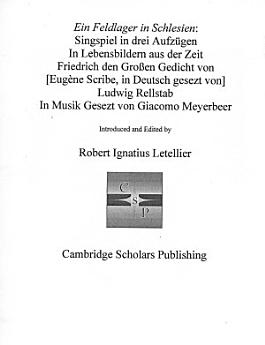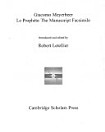EIN FELDLAGER IN SCHLESIEN: Singspiel in drei Aufzügen In Lebensbildern aus der Zeit Friedrich den Großen
About this ebook
Feldlager was Meyerbeer’s first opera in 30 years on a less serious topic, and using spoken dialogue.—in other words a Singspiel. Especially in the first and third acts, it is possible to see the influence of lighter composers, especially Lortzing and Auber. But much of the second act, especially the tremendous finale, is in the style of the grand operas.
Successful as Feldlager was in Berlin with the brilliant Swedish soprano Jenny Lind, Meyerbeer never considered its narrowly patriotic themes suitable for export. Edouard Hanslick pointed out that in no other of Meyerbeer’s works was the German nation so directly engaged, and emphasized the homely, comfortable tone that permeates the music of the score.
The overture and much of act 2 was adapted for Meyerbeer’s and Scribe’s opéra comique, L’Étoile du Nord (1854). Several melodies have become famous because of Constant Lambert’s adaptation of them for the ballet Les Patineurs (16 February 1937). The fame of the beautiful cantabile melody of the third movement has spread all over the world, and is known to so many who remain ignorant of its true provenance—in the finale of Feldlager, where it accompanies Vielka’s dream-vision and becomes a celebration of peace and the promise of wonderful things to come.








